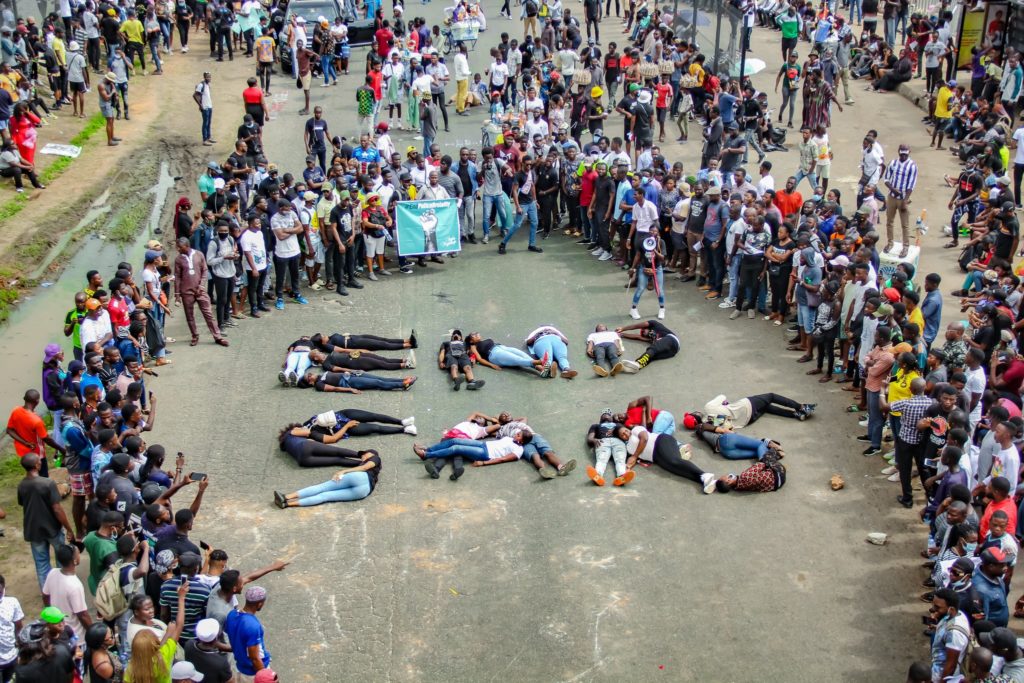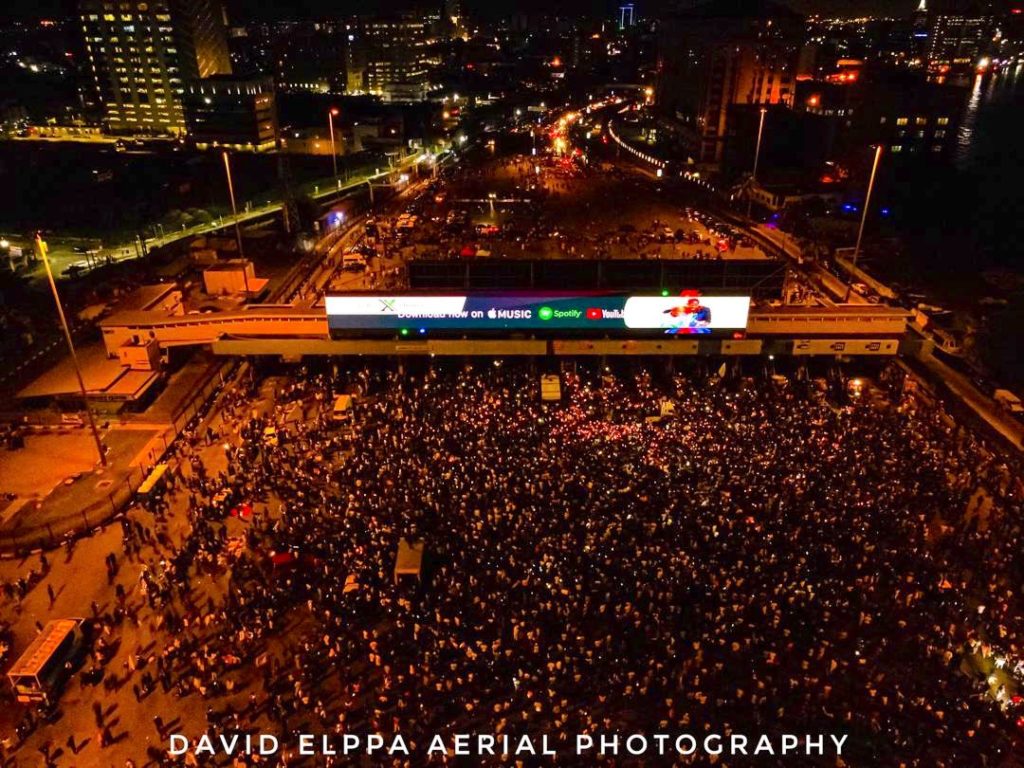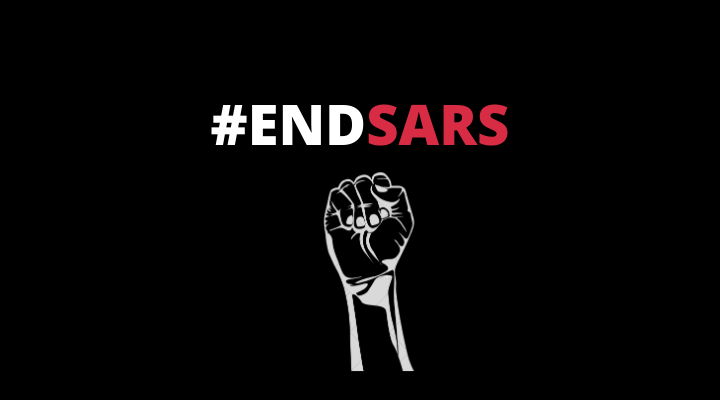The paradox: slavery in freedom
The youths, who are considered leaders of tomorrow, are not guaranteed a life worthy of living
Nigeria became a nation-state after gaining independence from Britain in 1960, and since then, the country has seen a succession of rallies led by youth organizations, labor unions, social activists, and other union leaders. That is, since Nigeria’s independence from colonial rule, social protest has become the best alternative in the practice of mass demonstrations and general strikes to press home their demands and grievances in the fight against socio-economic discontents such as poverty, corruption, high cost of living, unemployment, better living conditions, and repressive military rule.
The youths, who are considered leaders of tomorrow, are not guaranteed a life worthy of living. They struggle to send themselves to the university and fail to get jobs. The jobs available in the labor market are not sufficient for the youths that graduate in their multitudes annually. For many that intend to set up their businesses, securing loans from banks is a utopian thought and if possible, collateral clauses make it a herculean task. These problems have led some Nigerian youths to embrace cybercrime as a means of survival.
This sums up the fact that most of the survival tactics employed by the youths had not been effective enough because the gerontocratic system of government in place makes little or no plan for the young population. Recently, the president and commander in chief of the armed forces of Nigeria, President Mohammadu Buhari, spoke on live television that the government can no longer provide jobs for the youths, regardless their level of education or area of specialization. It could also be recalled that the president, in an interview, made a statement in 2019 that Nigerian youths are lazy and want free things.
Nigeria: a culturally diversified state
According to Statista, Nigeria is a country of over 212 million people. Nigeria is a West African country having coastlines on the Gulf of Guinea and the Atlantic Ocean. Benin, Cameroon, Chad, and Niger are all neighboring nations. The landscape varies from coastal wetlands in the south to tropical woods, woodlands, grasslands, and semi-arid/semi-desert in the north. The government is a federal republic, with the president doubling as the head of states and commander-in-chief of the armed forces. Nigeria has a mixed economic system, with a mixture of private 2liberty and centralized economic planning and government control. Nigeria belongs to the Economic Community of West African States (ECOWAS).
Nigeria’s culture is formed by the country’s diverse ethnic groupings. There are about 521 languages spoken in the nation, as well as around 1150 dialects and ethnic groupings. The Hausa and Fulani, who predominate in the north, the Igbo, who predominate in the southeast, and the Yoruba, who predominate in the southwest, are the four major ethnic groupings. In the territory between Yorubaland and Igboland, the Edo people constitute the majority. The Edos are mostly Christian. The Ibibio/Annang/Efik people of coastal southern Nigeria and the Ijaw of the Niger Delta are members of this group.
The rest of Nigeria’s ethnic groups (also known as minorities) may be found across the country, but particularly in the central belt and north. The Fulani, who are mainly Muslim and typically nomadic, are found throughout West and Central Africa. The Hausa are primarily Muslim, whilst the Igbo are primarily Christian. The majority of the Efik, Ibibio, and Annang people are Christians. The Yoruba have a healthy mix of Muslims and Christians among their ranks. Indigenous religious rituals are still practiced by all ethnic groups in Nigeria, and these beliefs are frequently mixed with Christian beliefs. Apart from the ‘pure’ English-speaking populace, Nigerian pidgin (which utilizes a main English lexicon) is also a popular lingua franca. Pidgin English, a simplified version of the language, is spoken by around a third of Nigeria’s population.
Cultures are ultimately the key to growth, oneness, integration, identity, and progress. As a result, culture, growth, progress, development, and even national integration are all intertwined. Even though Nigerians do not recognize it, the extraordinary rate and degree of cultural neglect in the country(s) is unrivaled. Culture is a panacea for development and progress. Nothing is accomplished or can be accomplished unless it is done in the context of culture. These cultural origins influenced the people’s cultural and political systems, as well as their conceptions and methods of development. Decisions are never made unilaterally, and the common good and efforts for collective growth are stated.
In a similar form, the Hausa of the northern portion of the country followed an Emirate system that was extremely hierarchical, with power and authority flowing from the top (the Emir) and followers required to obey. Many things might be disputed nowadays, but one cannot deny that globalization is having a significant impact on Nigeria and its cultures, both centrifugally and centripetally. These impacts have both good and bad aspects.
Nigerian Youths took a stand
Social protest is a tool to bring social issues to the attention of the government. In reality, EndSARS demonstrations arose in response to the Nigeria Police Force’s Special Anti-Robbery Squad’s (SARS) constant violence and persecution of youths and normal citizens. With successive official pronouncements that SARS will be demobilized in 2014, 2015, and 2017, the pace of this protest increased dramatically. Despite this, SARS personnel were observed acting with impunity, perpetrating crimes such as armed robberies, rapes, and other forms of torture on youths, as well as extrajudicial executions. These nefarious acts attracted the attention of NGOs and respected members of society to call for the disbandment of the unit. Despite the government’s announcement that SARS will be decommissioned on October 11th, 2020, protestors rose in numbers.
The use of social media to mobilize and attract more support for the demonstration was considerable. It is important to note, however, that the ‘EndSARS’ problem, as pushed by the youngsters acts as a trigger and a platform to bring to light all other remaining socio-economic concerns that impact the general population in the state. For example, there were concerns of terrible government, evident poverty, unemployment, salary cuts for senators and members of the House of Representatives, corruption, rising food costs, and electricity bill increases, to name a few.
The EndSARS Protest and the Pyrrhic Victory
The Special Anti-Robbery Squad (SARS) of the Nigerian Police Force was founded in 1992 with the primary goal of reducing insecurity and ensuring the greatest safety of lives and properties. Robbery, abduction, cybercrime, livestock rustling, and other associated offenses are all investigated by this section. They have the authority to arrest, imprison, question, and punish suspected criminals who have been proven guilty after thorough investigations. SARS’ work, however, became unpleasant to Nigerian residents after only a decade of existence. This is due to alleged human rights violations and ongoing harassment of the general public and youngsters. In a series of personal experiences of youngsters, some members of the SARS are engaged in unsettling behavior. For instance, the SARS agents often accuse young people using electronics of being cybercriminals due to their “expensive” looks.
End SARS is a decentralized social movement in Nigeria that consists of large rallies against police brutality. The slogan demands that the Special Anti-Robbery Squad (SARS) be disbanded. The demonstrations, which take their name from putting an end to the unit (End SARS), began in 2017 as a Twitter movement using the hashtag #EndSARS to demand that the Nigerian government dissolve the unit. The following resurgence in October 2020, and additional reports of the unit’s abuses, huge rallies took place across Nigeria’s main cities, followed by a barrage of social media anger. On Twitter alone, the hashtag has gathered about 28 million tweets. Many major cities across the world saw solidarity marches and demonstrations by Nigerians in the diaspora and sympathizers. The protests are remarkable for being attended by completely youthful Nigerian participants. Since then, the movement has grown to include calls for more transparent and responsible government.
The disbandment of SARS was largely hailed as a victory for the protesters. However, several observers noted that similar statements had been made in prior years to appease the public without the unit being abolished and that the government had intended to relocate and review SARS personnel to medical centers rather than disbanding the unit altogether. Protests have continued as a result, and the Nigerian government has maintained a record of brutal repression, including the assassination of protesters. International rallies have taken place in support of the protests in Nigeria, and the movement has grown more critical of President Muhammadu Buhari’s government’s reaction.
The youths employed a ‘Mahatma Gandhi’ type of protest called ‘satyagraha’, to make their problems known to the government
According to the BBC, young Nigerians, particularly men, have been accused of being profiled by SARS agents based on their fashion choices, tattoos, and haircuts. This police unit was also notorious for setting up unlawful roadblocks, conducting unjustified inspections and searches, arresting and detaining people without a warrant or a trial, raping women, and extorting young Nigerian men who drove fancy cars, laptops, and iPhones. Nigerians have shared personal accounts as well as video proof of SARS personnel abusing Nigerian people through kidnapping, murder, theft, rape, torture, unlawful arrests, humiliation, unlawful imprisonment, extrajudicial murders, and extortion(Amnesty International).

We (the youths) took to the street and agreed to have a ‘Mahatma Gandhi’ type of protest, called ‘Satyagraha’ (constructive non-violent or peaceful protest). The protest was predicted to yield no result like the previous ones based on the premise of co-opting of protest organizers, lack of commitment, compromises, funds, and others. The turnout was massive; free foods and drinks were provided; money was contributed through various channels; they were determined to end the corruption once and for all.
The protest started well and continued smoothly. The awareness and successes made headlines and the government observed that the protest was attracting international awareness. Various parts of Nigeria had peaceful protests running, with live reports on various social media platforms.
It didn’t take long, though, for the once peaceful demonstration to devolve into mayhem. According to the West Africa Network for Peace Building, the demonstration had already turned violent on the 8th of October, 2020, resulting in 92 deaths, 87 injuries, and damage of private and public property throughout all participating nations. Between October 17th and October 20th, 2020, 78 people died (including three police officers) and 73 people were injured as a consequence of police shootings, according to WANEP.
Hoodlums, thugs, and cult organizations also engaged in an attempt to disrupt the demonstration or hide under the appearance of demonstrating to carry out their wicked deeds. Under the pretext of the EndSARS protest, 16 police stations were burned and vandalized throughout all participating states; six (6) police stations in Edo state, four (4) in Lagos, one (1) in Oyo, one (1) in Ekiti, two (2) in Abia, one (1) in Osun, and one (1) in the Federal Capital Territory of Abuja. Robberies, jailbreaks, extortions, assault, rape, looting, and burning were among the horrific incidents that happened during the demonstration.
After the gunfire at the Lekki toll gate on the night of 20th October 2020, further difficulties arose from the demonstration. In most sections of Lagos State, the military action and unwillingness to claim responsibility for the shootings caused anarchy (BBC). Hoodlums desecrated whatever they could lay their hands on on the streets of Lagos. Several offices were plundered and valuables were hauled away; warehouses, where COVID-19 palliatives were housed, were ransacked, and security personnel was spotted removing food items from those facilities. Much has been spoken about this circumstance, but no tangible remedies have been devised to address this burning issue.

The growth of the protest, as well as the subsequent agitations and violence, may be traced back to a history of hardship, poverty, unemployment, and political diseases such as corruption, embezzlement, and so on. As a result of the failure to satisfy fundamental human rights, the ENDSARS Protest became a socio-political, economic, and psychological phenomenon. The reaction of teenagers to military brutality has left a deep scar on the country. In Lagos State, for example, the staff of the renowned Oba of Lagos was carried away, along with other tangibles. Many other cultural heritages were also damaged, and the Lagos state government suffered a significant loss as a result of the protest-related vandalism.
Immediately after the shootout and vandalism, the government went after the organizers of the once peaceful protest. The bank accounts of the organizers were frozen; their international passports were seized and not allowed from leaving the country; they were threatened with imprisonment. The government meant war, but all the young generation wants is a better life.
Conclusion
In addendum, the EndSARS protest evolved around a framework created by youths to solve the country’s many problems. Youths were able to express their dissatisfaction with the nation’s administration and the Nigerian police unit’s unethical behavior through the demonstration. For the first time in the country’s history, the demonstration brought to light the youngsters’ need to create a forum through which the nation’s multifarious difficulties, including sociopolitical, economic, and psychological issues, might be addressed.
The government needs to rise to the challenge and restore normalcy to normless Nigeria in the 21st century. It is essential to make budgets for the youths annually. Developed nations of the world have almost put their youths at the center of their plans and wheels of development. It is expedient that the government create more jobs for the youths, and fix more youths in key positions, rather than just being mere appendages of main offices.
IVolunteer International is a 501(c)3 tech-nonprofit registered in the United States with operations worldwide. Using a location-based mobile application, we mobilize volunteers to take action in their local communities. Our vision is creating 7-billion volunteers. We are an internationally recognized nonprofit organization and is also a Civil Society Associated with the United Nations Department of Global Communications. Visit our profiles on Guidestar, Greatnonprofits, and FastForward.




